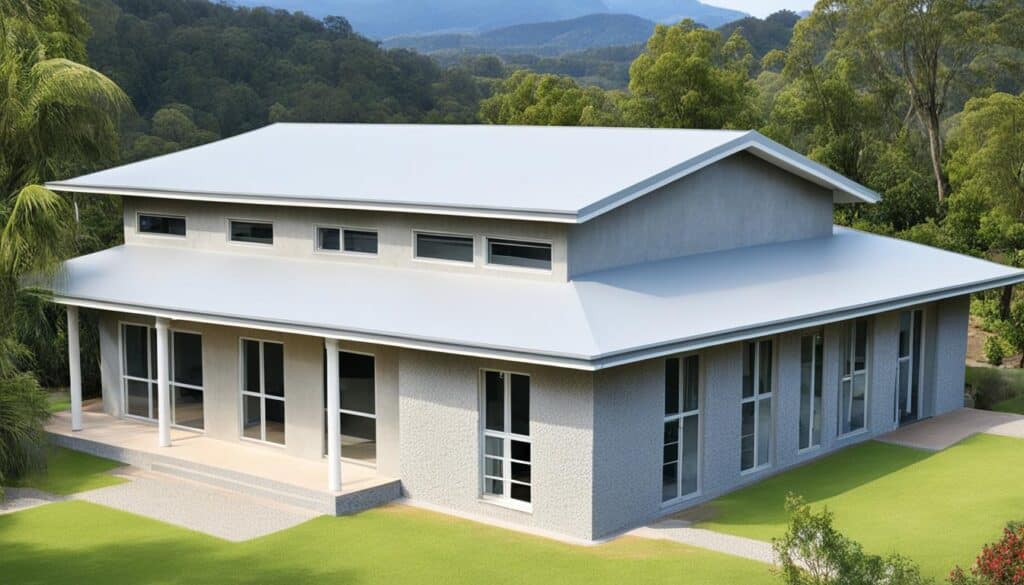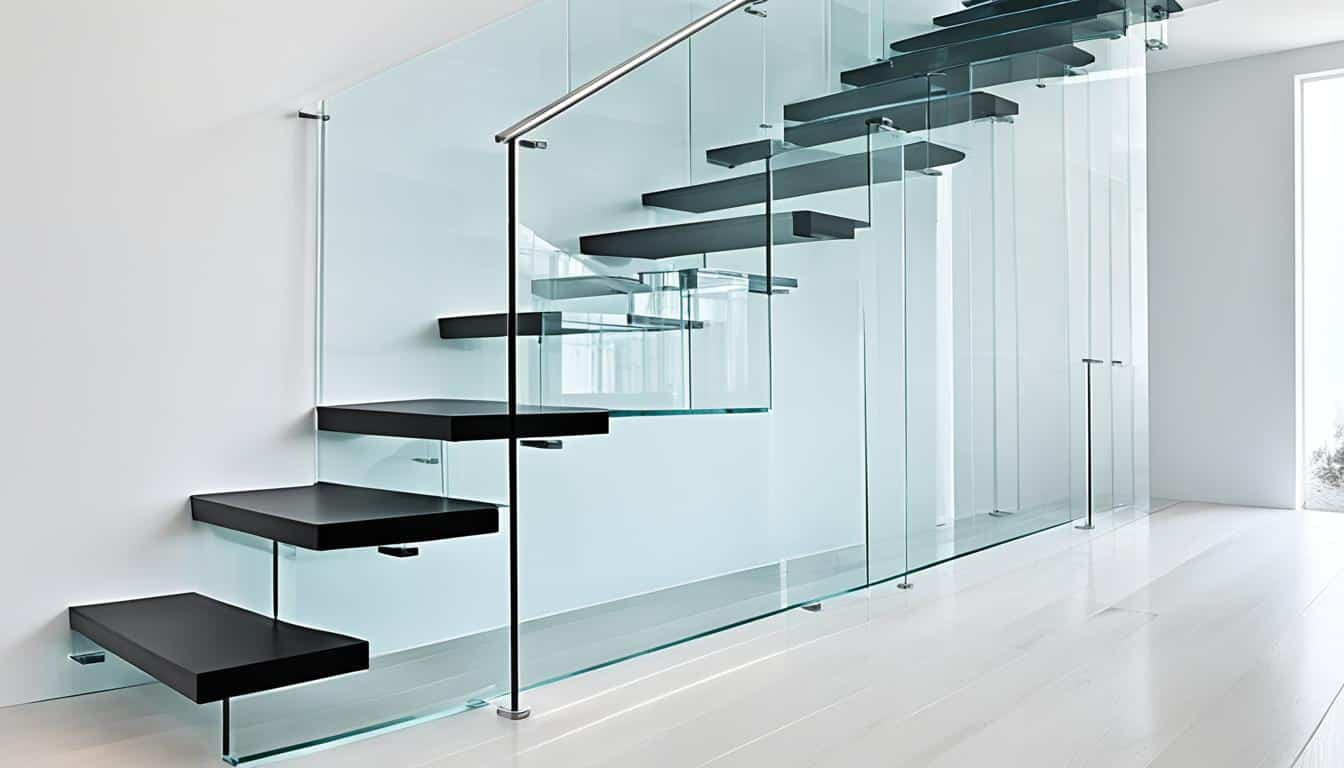Constructing a home is a venture of both heart and investment, hence choosing the right materials is paramount to ensure longevity and safety. In India, a country renowned for its architectural diversity and construction prowess, selecting the premium cement brands is a critical decision for any homeowner. This introduction aims to shed light on the Indian construction materials that are the backbone of any solid structure, focusing on the most reliable house building cement choices one can make. It’s not just about creating walls and foundations but about building a fortress that stands the test of time and nature.
With a myriad of options available, understanding the quality and suitability of different cements can be daunting. Our insightful guide is here to walk you through the essentials, helping you to lay the groundwork for a dwelling that embodies strength, durability, and peace of mind. Whether you’re building a bungalow, apartment, or villa, the information here will help you procure the perfect amalgam of quality and cost-effectiveness for your dream abode in India.
Key Takeaways
- Identify top-tier premium cement brands for robust house construction.
- Learn about the various types of Indian construction materials used in residential building.
- Discover the crucial attributes of house building cement that ensure a durable Indian home.
- Gain insights on how to navigate the abundant market offerings to choose the best cement for your construction needs.
- Recognize the importance of selecting cement that harmonizes with the geographical and environmental demands of your locale.
Understanding Cement Types for Residential Projects
Embarking on a home construction journey requires knowledge of the materials that will form the backbone of your abode. Among these, cement is paramount, and in India, two predominant types hold the reins—Ordinary Portland Cement (OPC) and Portland Pozzolana Cement (PPC). These building materials in India serve various construction needs and climates, making it essential to understand the nuances of each type to ensure that one’s home stands both structurally sound and weather-resistant.
Comparing OPC and PPC Variants
The common types of cement used in residential construction include OPC and PPC, each harboring unique advantages. OPC, known for its high initial strength, is ideal for the structural framework, while PPC, with its durability and resistance to chemical attacks, is preferred for the finishings and in areas with high sulphate content in the soil. Hence, understanding the chemistry and suitability of Ordinary Portland Cement and Portland Pozzolana Cement can significantly affect the longevity and safety of a structure.
Importance of Cement Grade for Home Construction
Cement grade quality plays a crucial role in determining the resilience of a building. Grades such as 33, 43, and 53 denote the comprehensive strength of cement in megapascals, which corresponds to the level of pressure the cement can withstand. It is critical to consider these grades when selecting cement grade quality for different segments of the construction process to ensure stability and durability.
Regional Cement Preferences and Availability
In India, a vast land with varied environmental conditions, regional preferences for cement types and grades diverge significantly. The cement type favored in coastal regions might vastly differ from that in dry, arid zones. The table below illustrates the regional preferences and availability of cement across different zones of India, offering a quick reference for homeowners and builders.
| Region | Preferred Cement Type | Popular Cement Grades | Availability |
|---|---|---|---|
| North India | OPC | 43 and 53 | Highly Available |
| West India | PPC | 43 | Moderately Available |
| South India | OPC and PPC | 53 | Widely Available |
| East India | PPC | 33 and 43 | Widely Available |
Choosing the right type of cement not only aids in achieving the desired structural integrity but also in aligning with the regional climate conditions and construction norms. As we enter deeper into the fascinating world of building materials in India, it becomes increasingly clear that an informed selection could make all the difference in achieving the ideal home structure.
Selecting the Right Cement Brand for Durability
When it comes to building a home that lasts, selecting the best cement for construction is a decision of fundamental importance. In India, with its varying climates and geological conditions, homeowners and builders need to be particularly astute in their choice of cement, making sure they opt for durable building materials and rely on trusted cement brand reviews. This segment will provide you with the insights you need to make an informed choice on the cement brands that are synonymous with strength and longevity.

Top-Rated Cement Manufacturers in India
Selecting a cement brand often starts with looking at the reputation of the manufacturer. In India, several top-rated companies are often recommended by professionals for their excellent track record in producing durable building materials. Brands like UltraTech Cement, ACC Limited, and Ambuja Cements are known not just for their extensive reach but also for their commitment to quality standards that support formidable construction projects.
Expert Reviews and Construction Industry Ratings
Expert assessments and industry ratings play a critical role in distilling the vast array of options available. These reviews critically analyze the performance of cement brands under varied conditions, offering professional critiques that highlight which brands may offer the best cement for construction given specific building requirements. Finding sources of expert opinion can guide homeowners and builders towards products that offer proven reliability.
Consumer Feedback and Longevity Reports
The true testament to the quality of a cement brand can often be found in consumer feedback and longevity reports. Real-world experiences from homeowners and builders provide invaluable insights into how cement brands perform over time. For instance, consumer discussions around the lifespan of structures using certain brands of cement can shine a light on which ones stand up to the vagaries of weather and time. Reviewing such feedback can offer a glimpse into the long-term satisfaction you might expect from your investment in a particular cement brand.
In sum, when deciding on the best cement for construction, consider the wealth of knowledge available from top manufacturers, expert reviewers, and the lived experiences of consumers. This collective wisdom can power your decision-making towards selecting a brand that provides durable, reliable, and superior quality cement for your construction needs.
Analyzing Cement Quality and Standards
The foundation of any durable and safe construction lies in the quality of the building materials used. Within the realm of construction, the strength of cement determines the overall integrity of the building. In India, where the construction industry continues to burgeon, adhering to cement quality control and the Indian Standards for building materials is not just a practice; it is a prerequisite for ensuring the safety and longevity of buildings.
Staunch regulations set by authorities like the Bureau of Indian Standards (BIS) provide a comprehensive framework within which cement quality is assessed. These regulations are a testament to the construction industry norms that prioritize durability and safety in building materials.
Adherence to BIS certifications, such as the IS 1489 for Portland Pozzolana Cement or the IS 269 for Ordinary Portland Cement, is indicative of premium quality and reliability.
Cement which complies with these standards is rigorously tested for properties such as setting time, fineness, strength, and consistency. This level of scrutiny ensures that only the best cements make it to the market and ultimately into the homes of Indian residents.
The table below highlights some key quality control tests and the standards they must meet:
| Cement Test | Standard Specification | BIS Code |
|---|---|---|
| Compressive Strength | Must meet specified strength at 3, 7, and 28 days | IS 4031 |
| Fineness | Percentage of cement particles finer than 90 microns | IS 4031 (Part 1) |
| Consistency | Standard consistency to ensure the workability of cement paste | IS 4031 (Part 4) |
| Initial and Final Setting Time | Time taken for cement paste to harden | IS 4031 (Part 5) |
| Soundness | Ability to resist volume expansion | IS 4031 (Part 3) |
For homebuilders and contractors, understanding these standards and controls is essential. This is not only to navigate the complex landscape of the construction industry but also to make informed decisions about the most crucial component of their building projects—the cement.
Given the critical nature of cement in constructing long-lasting homes, a keen comprehension of these benchmarks is indispensable for any civil construction project. Being conversant with Indian Standards for building materials equips builders with the ability to insist on high-quality cement, thereby, safeguarding their construction against the potential risks associated with substandard materials.
- Manufacturers must comply with stringent BIS requirements to ensure safety and consistency.
- Cement quality control encompasses a variety of tests, each verifying a different aspect of the cement’s performance.
- Builders must be vigilant in sourcing cement that fulfills these criteria to guarantee the construction of dependably sturdy structures.
Ultimately, the onus lies with builders and consumers to demand transparency and certification from their chosen cement suppliers. By doing so, they are not only upholding the standards of the Indian construction industry but also contributing to the edification of homes designed to stand resolutely for generations to come.
Conclusion
In conclusion, the journey of constructing a home in India hinges on the smart cement selection that caters to both the structural fortitude and the climate-specific challenges of the region. Through the insights provided in this article, prospective homeowners are now better equipped to navigate the gamut of sustainable construction materials, ensuring choices made are robust, cost-effective, and environmentally conscious. A discerning approach to selecting the optimal cement derails common pitfalls and lays the foundation for a home designed to last.
Summarizing the Ideal Cement Choice
The ideal cement choice is one that balances initial strength with long-term durability, meets regional climate requirements, and conforms to stringent grading standards such as those set by the Bureau of Indian Standards. Brands that stand out in the Indian market, combining these aspects with reputable manufacturing processes, include UltraTech Cement, ACC Limited, and Ambuja Cements. These names have become synonymous with quality and dependability in the realm of home construction.
Tips for Sourcing Cement for Your Home Project
To ensure the procurement of high-quality cement, engage with verified suppliers who offer products backed by solid warranties and quality certificates. Don’t hesitate to request test reports and to consult with industry experts for insights on the most appropriate cement type and grade for your home project. Prioritizing suppliers with a consistent supply will also circumvent any construction delays, paving the way for a streamlined building process.
Future Trends in Cement Technology and Sustainability
Looking towards the horizon, future cement innovations promise to revolutionize the construction industry. Developments in the realm of sustainable construction materials are set to offer enhanced durability while shrinking the environmental footprint of building activities. Preparing for the incorporation of greener options into construction practices is an investment in the future — one that aligns with global shifts towards eco-friendly living spaces and a more considerate balance with nature.





